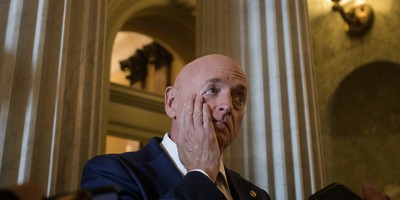We now know that there are at least two forms of religion that Barack Obama does not believe in: the religion preached by the Rev. Jeremiah Wright, who baptized his children, and the religion clung to by the bitter people of Pennsylvania, whose votes he hopes will help make him president of the United States.
This raises a fundamental question: What does Barack Obama believe?
This is one of the two most important questions voters can ask about a presidential candidate. The other is: What sort of wisdom and courage is a candidate likely to exhibit, if elected, in carrying his beliefs into action?
There are politicians, for example, who will clearly profess certain beliefs to the voters when they are running for office and then betray those beliefs once they are elected. A recent example is Sen. Bob Casey Jr. of Pennsylvania.
Casey ran in 2006 against incumbent Republican Sen. Rick Santorum. Both candidates told the Pennsylvania Catholic Conference that if Roe v. Wade could be overturned, they supported "providing legal protection for unborn children from the moment of conception."
Casey has now endorsed Obama for president. Obama not only claims that abortion is a constitutional "right," but also as an Illinois state senator opposed a bill that would have defined as a "person" a baby who survived a late-term abortion. For life-begins-at-conception Casey to support life-doesn't-even-begin-after-birth Obama is an unambiguous betrayal of Casey's stated belief in the right to life.
Then there are those rare politicians who express deeply held beliefs that may be unpopular, but who have the wisdom and courage to stick by them without wavering even in the face of withering criticism. Ronald Reagan was one of these.
Recommended
In an October 2003 article in Human Events, Reagan National Security Adviser Richard V. Allen explained how in January 1977 Reagan revealed a then-startling conviction to Allen about America's conflict with the Soviet Union.
"Well," Reagan told Allen, "some say that I am 'simplistic,' but I believe that many complex problems have simple answers. There's a difference between 'simplistic' and 'simple.'"
"So," Reagan continued, "about the Cold War: My view is that we win and they lose."
Reagan's conviction that the Cold War could be won -- and must be won -- was rooted in his religious beliefs. That is why, in a 1983 speech to the National Association of Evangelicals, Reagan called the Soviet Union an "Evil Empire."
In that same speech, Reagan also cited the onetime communist and religious convert Whittaker Chambers, who, Reagan said, "wrote that the crisis of the Western World exists to the degree in which the West is indifferent to God, the degree to which it collaborates in communism's attempt to make man stand alone without God. And then he said, for Marxism-Leninism is actually the second oldest faith, first proclaimed in the Garden of Eden with the words of temptation, 'Ye shall be as gods.'
"The Western world can answer this challenge, (Chambers) wrote," said Reagan, "'but only provided that its faith in God and the freedom He enjoins is as great as communism's faith in Man.'"
Reagan's vision was not only true, it was profoundly optimistic: Our faith beats their materialism.
Obama would never say the words Reagan said. Instead, he told the crowd at a San Francisco fund-raiser that it did not surprise him that bitter people in small towns in Pennsylvania "cling" to religion "as a way to explain their frustrations." Obama, these remarks suggest, does not embrace the religious vision that won the Cold War, but the anti-religious vision that the Cold War defeated.

























Join the conversation as a VIP Member